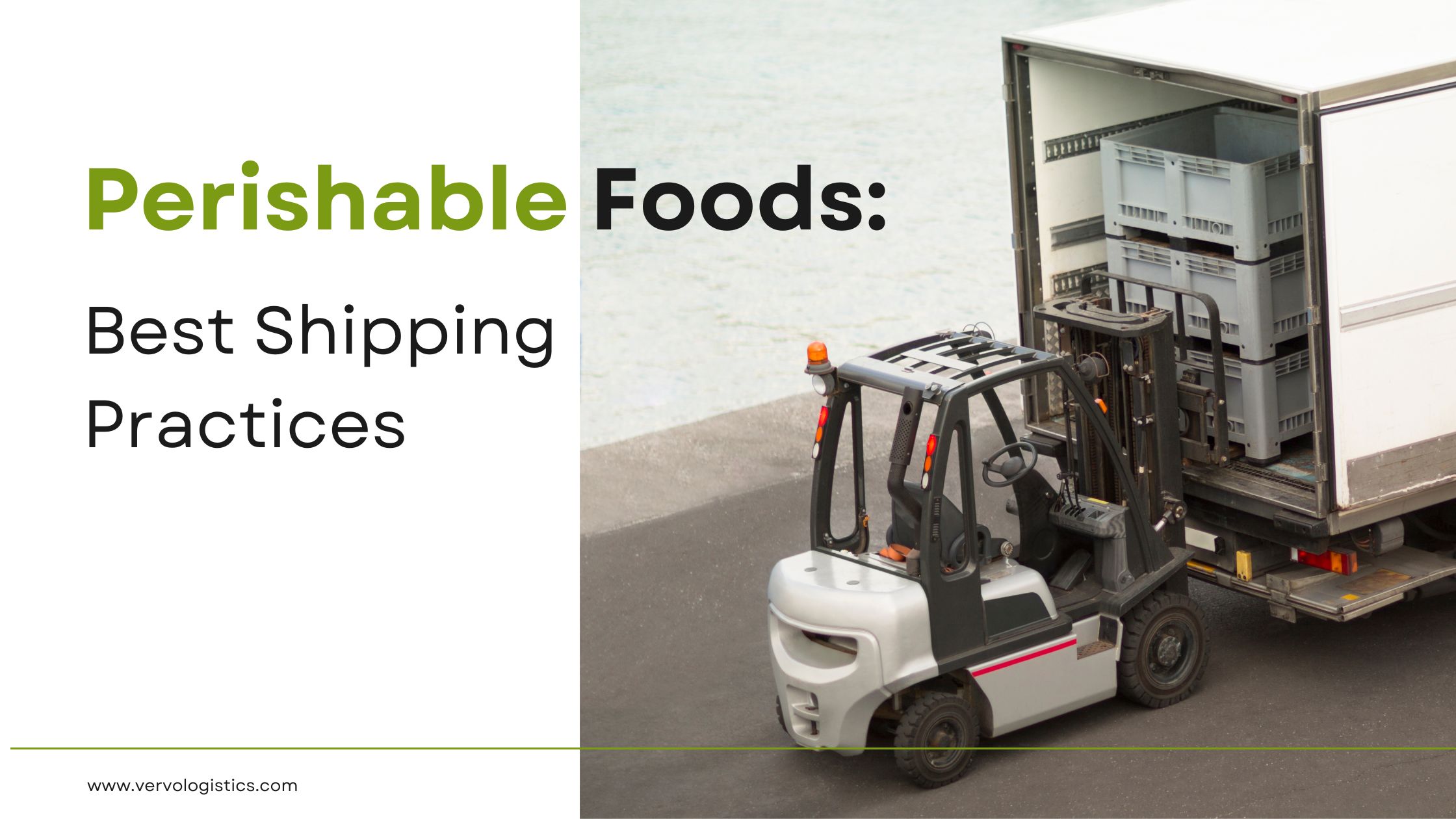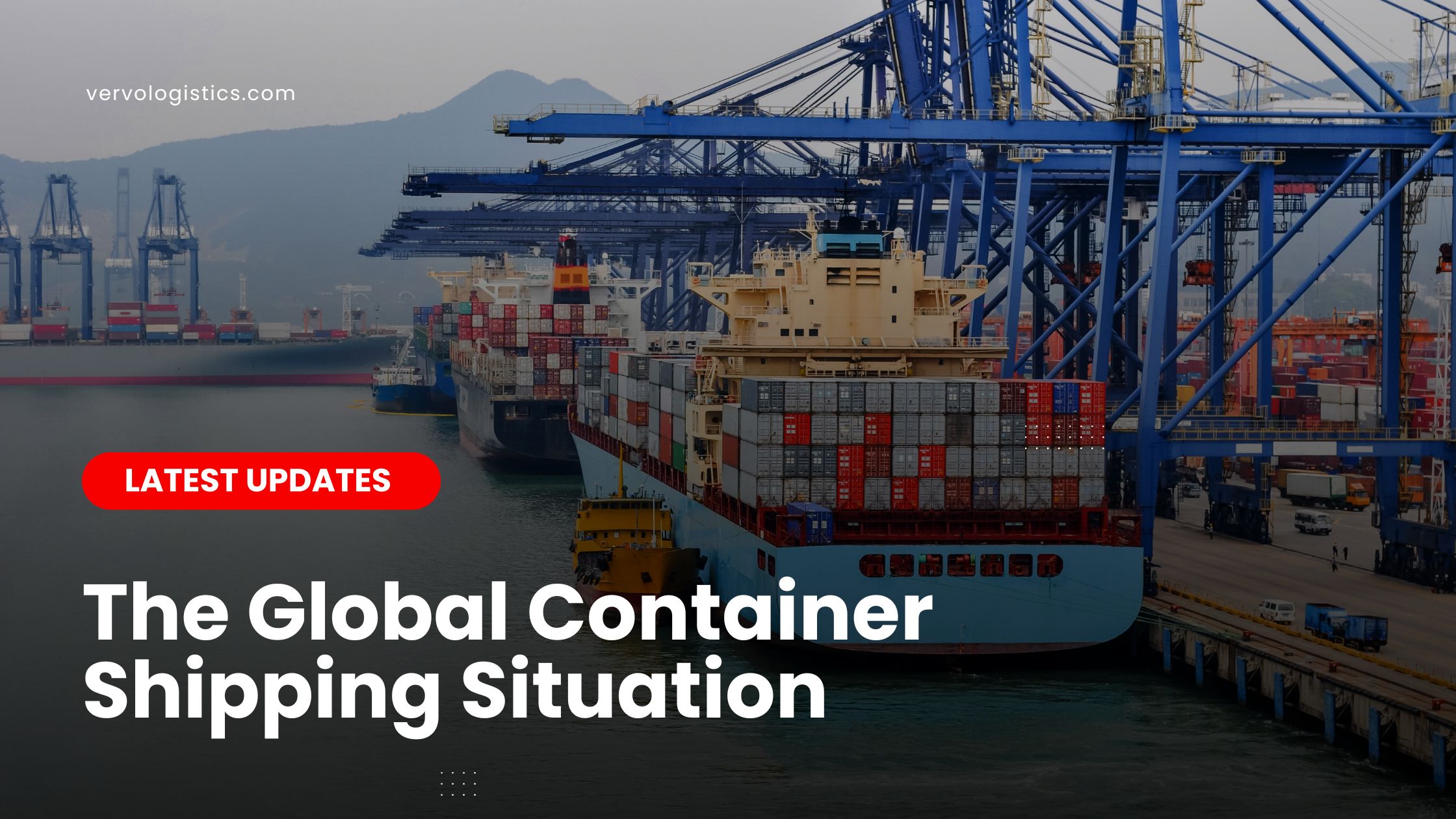Shipping perishables across borders while keeping them fresh is like a race against time and temperature. This is particularly true in the UAE's demanding environment, where quality and freshness are non-negotiable.
Successful shipping of perishable cargo, from fruits to dairy, requires an intricate implementation of proven practices to ensure products arrive with optimal shelf life and in peak condition.
At Vervo Middle East, we have asked our team about the best practices for ensuring that when such a shipment arrives, it’s as fresh as the moment it was harvested or produced. They walked us through the science of perishables and environmental control in perishables logistics!
The Science of Perishables
Grasping the nuances of perishability is essential for anyone who transports time- and temperature-sensitive products.
Perishable goods, from tender fruits to delicate dairy products, are subject to a complex interplay of biochemical processes and environmental factors that can accelerate decay.
So, what are the variables that influence spoilage? and how can they be controlled through precise logistics?
Environmental Control in Perishables Logistics
Perishables have a limited shelf life due to enzymatic activities, microbial growth, and oxidative processes. For instance, fruits emit ethylene, a natural plant hormone that stimulates ripening and can lead to overripening or spoilage.
Dairy products, on the other hand, are highly susceptible to bacterial contamination and enzymatic spoilage, which can alter their texture, smell, and taste.
So, what do we control in perishable logistics?
✓ Temperature Management: The cold chain must be rigorously maintained to inhibit microbial growth and slow down enzymatic reactions. This involves not just refrigeration but also advanced cooling technologies that modulate temperatures based on the specific needs of the cargo. For instance, using cryogenic cooling systems that employ carbon dioxide can rapidly lower temperatures for highly sensitive shipments.
✓ Humidity Control: Humidity levels must be tailored to the specific requirements of the perishable goods in question. Too much humidity encourages the growth of mold and bacteria, while too little humidity leads to dehydration and quality loss. What we do is utilize desiccants or humidity-controlled containers to maintain optimal levels.
✓ Control for Enzymatic Activity: Enzymes in perishable foods can lead to overripening and textural degradation. While transporting them, we also control these enzymatic reactions to preserve quality.
✓ Controlling Microbial Growth: Bacteria, yeasts, and molds thrive in certain conditions and can rapidly spoil perishable goods. What we do is maintain sanitary conditions and control certain environmental factors inside the reefers moving the cargo.
✓Oxidation: Exposure to oxygen leads to loss of flavor, color, and nutritional value. Before we load any cargo, we must make sure there is convenient packaging that reduces oxidation and extends the life of perishable products. Moreover, each reefer container or reefer truck we utilize has a comprehensive control system that controls environmental parameters such as humidity and oxygen levels.
Best Logistical Practices for Shipping Perishable cargo
The use of reefer containers and trucks with advanced control systems represents a significant leap forward in perishable food logistics. But it is not just limited to the use of reefers. Here are the best logistical solutions and practices for shipping perishable cargo:
1st ➡️ We use advanced packaging that provides insulation and incorporates modified atmosphere packaging (MAP). This extends the shelf life of perishable foods by limiting exposure to oxygen and controlling the internal atmosphere of the packaging.
2nd ➡️ Real-time monitoring with IoT sensors and RFID tags now provides real-time data on the temperature and humidity conditions of a shipment, enabling proactive adjustments and immediate response in case of deviations from preset environmental parameters
3rd ➡️ The cargo monitoring services leverage data analytics to predict and mitigate potential disruptions in the shipping process, preventing spoilage. This happens through integrated logistics platforms that involve analyzing weather patterns, traffic data, and shipment tracking information to optimize delivery routes and timing, all at the tip of your finger.
Reefer (Refrigerated) Containers:
Reefer (refrigerated) containers and trucks are always equipped with comprehensive control systems. These systems are designed to maintain the optimal environment for perishable items throughout their journey, considering the following: temperature precision with settings that can be adjusted even remotely; and humidity and oxygen control with controlled atmosphere technology within reefers can extend the freshness of produce by slowing down ripening processes.
This way, we ensure that perishable goods are transported in a manner that maximizes freshness and minimizes waste by 100%.
Shipping perishable cargo to the UAE? Reach out to our team in Dubai today at +971508723352 or
With Vervo Middle East, our logistics team finds your perishable cargo the most suitable reefer to use, no matter its volume or characteristics.
We move perishables across borders via sea, land, air, and multimodal shipping with zero mistakes!
Drop us your cargo details and get a personalized refrigerated shipping quote in 60 minutes.




